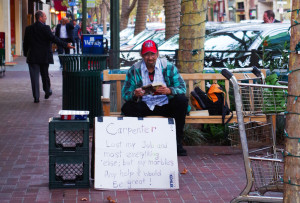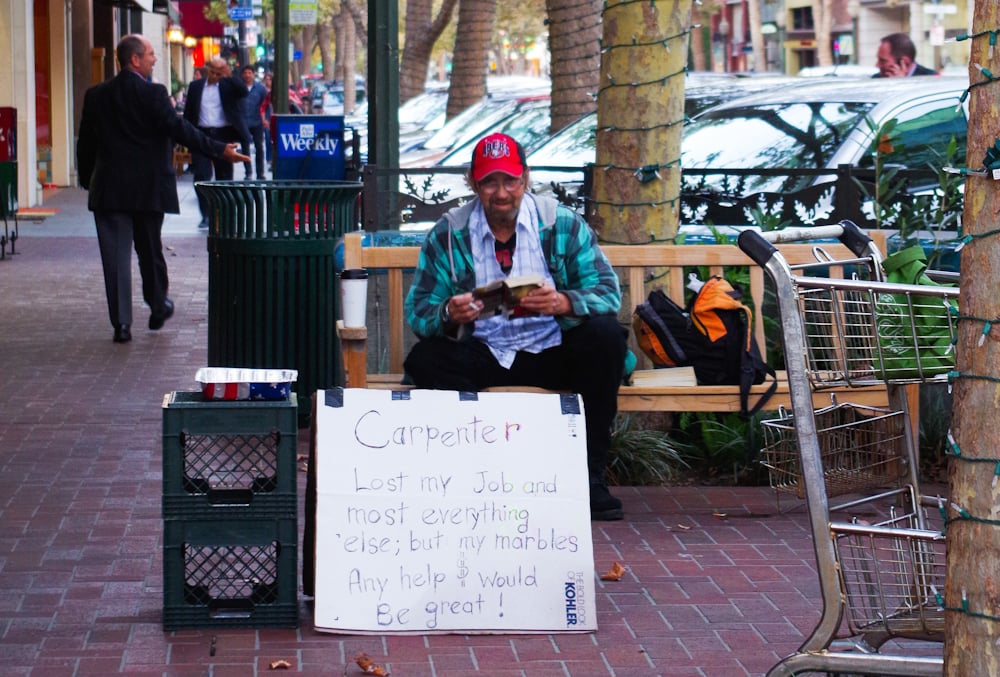
Palo Alto City Council passed a highly debated and controversial ordinance in early August banning the act of living in a vehicle within the city.
Liz Kniss, chairwoman of the City Council’s Policy and Services Committee, said that vehicular habitation in Palo Alto has been happening for over 15 years, with residents consistently citing instances of people living in their vehicles around the Cubberley Community Center.
According to Kniss, it has become easier for people to “park [their] vehicles there and hook up to the electricity” at the former site of Cubberley High School.
Those interviewed for this article estimated that up to 30-50 people may be living in their cars in the Cubberley area at any given time.
While the ordinance – which is accompanied by a six-month grace period allowing current vehicle dwellers time to seek alternatives – primarily bans living in one’s car, it also directly impacts the operations at Cubberley. The center’s showers have been eliminated, the Wi-Fi is disabled after 10 p.m. and the electricity may be turned off in the future as part of the ban.
The ordinance, originally proposed two years ago but ultimately shelved in favor of alternative programs, stems from complaints from surrounding residential communities.
Incidents involving littering, urination and defecation have been reported in the area surrounding Cubberley. Kniss explained that one of the ban’s selling points was that residents’ children find the area intimidating and feel uncomfortable walking through it.
While many community members fully support the ordinance, there are a number of those who find it mean-spirited.
“The idea of taking away shelter from people who don’t have regular housing is mean, draconian, counter-productive – not what anybody is brought up to do,” said Chuck Jagoda, a 70-year-old Palo Alto resident camping in his vehicle.
Jagoda and others feel that homelessness is essentially the product of a lack of resources, and that taking those very resources away – such as those previously provided by Cubberley – is not a valid solution.
“If you’re concerned for sanitation, why close bathrooms?” Jagoda asked.
Jagoda also argued that many vehicle dwellers – women in particular – feel safer sleeping in their locked cars at night than they do sleeping in a shelter. To take away the ability to live in one’s vehicle is also to take away a certain sense of security, he added.
Additionally, although Jagoda plans to take advantage of several alternative programs and senior housing, many people do not want alternative housing because their vehicles have become a comfortable space for them, according to Kniss.
“I think it’s very bad for Palo Alto’s legacy,” Jagoda said. “It is not in keeping with the traditions of Palo Alto…or with an attitude of concern for people less fortunate.”
The ordinance has proved divisive even since its first proposal two years ago, and has spurred the formation of several local opposition groups such as the Stop the Ban group and the Community Cooperation Team.
Aparna Ananthasubramaniam ’13, M.S.’14, is part of both aforementioned groups. Ananthasubramaniam first became involved with housing issues when she joined Night Outreach, a Stanford student group which takes walks in Palo Alto on Fridays and engages in dialogue with homeless people.
Ananthasubramaniam, in collaboration with another Stanford student, formed the Community Cooperation Team two years ago when the ban first came up for debate. The group sought to oppose the ban and to brainstorm alternatives that would “make people who live in homes in Palo Alto feel safe, but would also allow people who sleep in their cars to keep some of the options they have.”
Although it has been difficult for Stanford students interested in this issue to promote on-campus awareness due to the conflict arising over the summer, Ananthasubramaniam plans to speak with several student groups this year to gauge if they are interested in supporting a movement against the ban.
While the ban’s supporters and opponents each feel strongly for their case, both Ananthasubramaniam and Jagoda agree that there has not been as much discussion between the two groups as there could be, and that increased communication between both sides in the community may be advantageous in finding a middle ground.
Contact Samantha Neuber at [email protected].
